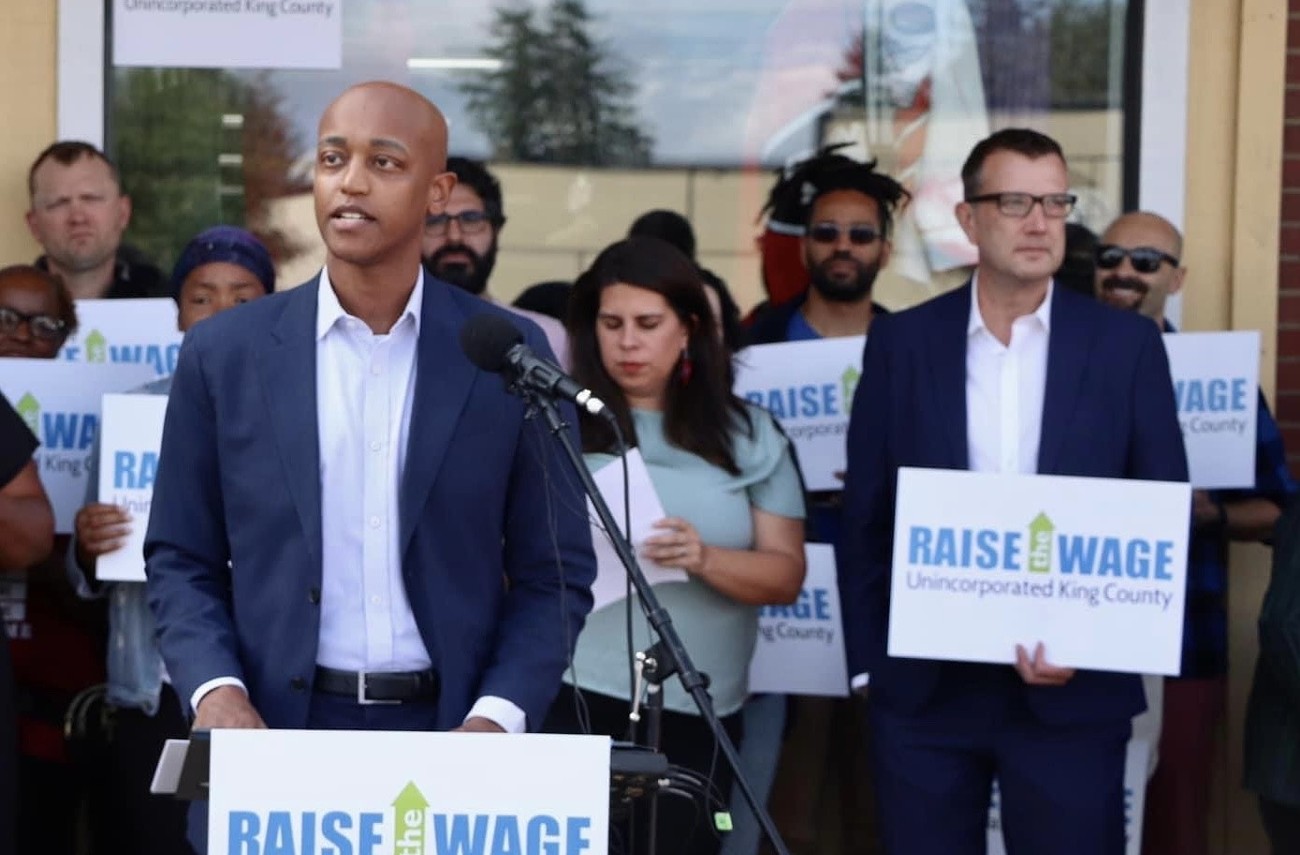Throughout my childhood, my mom worked as a nursing assistant, earning close to minimum wage. Every day, she donned her scrubs, drove to the retirement home, and punched in for the evening and graveyard shifts from 2 pm until 6 am the next morning. The job was brutal on her body. She stood on her feet all day, lifted and moved patients, served their meals, and helped them use the restroom. Regularly, after a grueling 16-hour workday, she’d hop in her car and drive to another location for an additional four hours of home care.
The idea of driving across town on no sleep to work four more hours for just $35 total is daunting enough, but one winter morning the story took an even more depressing turn.
After completing the graveyard shift, my mom rushed from the Central District to Skyway for the final leg of her 20-hour work day. Unfortunately, during her drive, she noticed blue and red lights flashing in the rearview. The officer informed her that she had been going 26 mph in a school zone. The $200 speeding ticket wiped out her entire week’s supplementary income.
I can vividly recall her tearful account of what transpired–an entire week’s worth of strenuous work erased with one mistake.
A romanticized view of the American Dream would depict my mom finishing her decades of work as a nursing assistant with a big retirement party and a savings account to match. That’s not what happened. The years of physical labor wore down her body until both of her knees collapsed. She is now disabled with no financial security other than that provided by her adult children.
This story is a painful reminder about what too many low-wage workers endure in King County. According to the 2023 National Low Income Housing Coalition’s Out of Reach data, an employee making Washington State’s 2023 minimum wage of $15.74 would have to work 103 hours each week to afford a modest, one-bedroom rental home at fair market rent in King County. In 2022, a family with two children and two working parents earning the state’s minimum wage would fall short an average of $36,442 when trying to meet their basic needs. Working full-time and being unable to afford modest rent, child care, food, and medical care is unacceptable. One job should be enough in King County.
Washington State’s minimum wage has slowly ticked up over the years, but nowhere near the pace of the skyrocketing cost of living. That’s why cities across King County have taken matters into their own hands. In 2014, SeaTac became the first city in the United States to increase the minimum wage to $15. In 2015, Seattle followed with a city council ordinance. In 2022, Tukwila voters passed an initiative to increase the minimum wage by about $3 an hour. And just this year, Renton voters passed an initiative to raise their minimum wage to $20.29 beginning in July.
Unfortunately, residents of unincorporated King County don’t have a city government to protect them. That’s why workers in Skyway, an unincorporated neighborhood, might feel like they’re living on an island of poverty. They could walk a block north to Seattle, east to Tukwila, or south to SeaTac or Renton and find that their wages increase by $3 or $4 more per hour. Despite facing similar economic challenges with respect to housing costs and inflation, these residents have been left behind.
Until the state takes action, King County government must do more to promote consistency and economic mobility across our region. That's why I have proposed legislation that raises the minimum wage to $20.29 in unincorporated King County.
I have worked closely with local unions, small businesses, advocates, and my colleagues on the King County Council to shape a proposal that will be beneficial to our entire region and economy. My proposal would provide a slow ramp-up period of up to six years for small businesses to comply with the new law. The latest draft has also pushed out the effective date, removed certain onerous reporting requirements, given employers time to correct wage mistakes once they have been notified, and required that the Executive evaluate the impact of this wage rate on the agricultural sector.
I was thrilled to see a majority of my colleagues vote yes to pass my proposal out of the Transportation, Economy, and Environment committee this past Tuesday. I am hoping the full council will do the same in May.
If unincorporated King County were a city, its 246,000 residents would make it the second-largest city in King County. My ordinance would ensure these community members receive similar opportunities as their neighbors in incorporated cities. Raising the minimum wage has been shown to be good not only for workers but also for businesses and the local economy. Studies have found that higher wages lead to lower turnover, higher productivity, increased consumer spending, and reduced poverty.
We have the opportunity to follow the lead of voters and cities around our region in supporting thousands of workers and creating a more equitable and thriving economy for all.
Let’s build on this momentum and raise the minimum wage for workers across King County.
Girmay Zahilay represents District 2 on the King County Council.



















